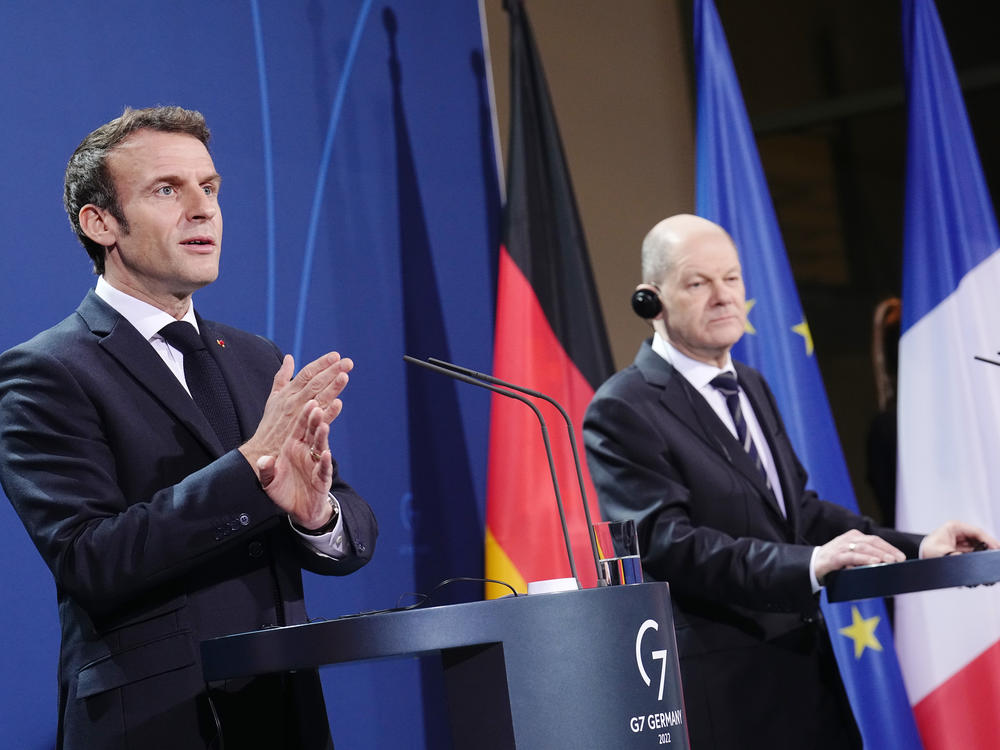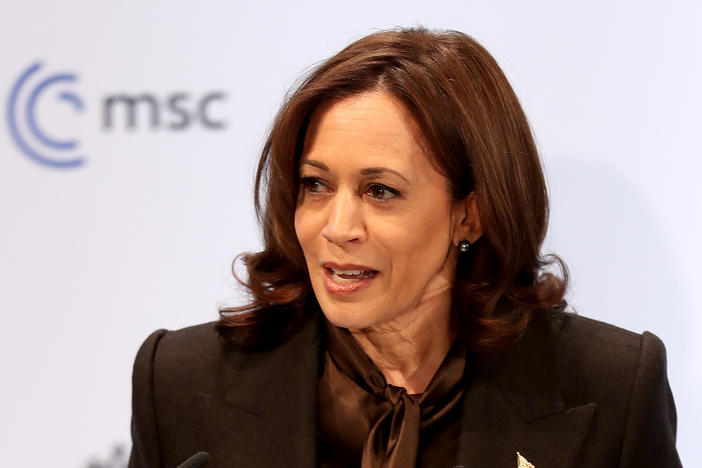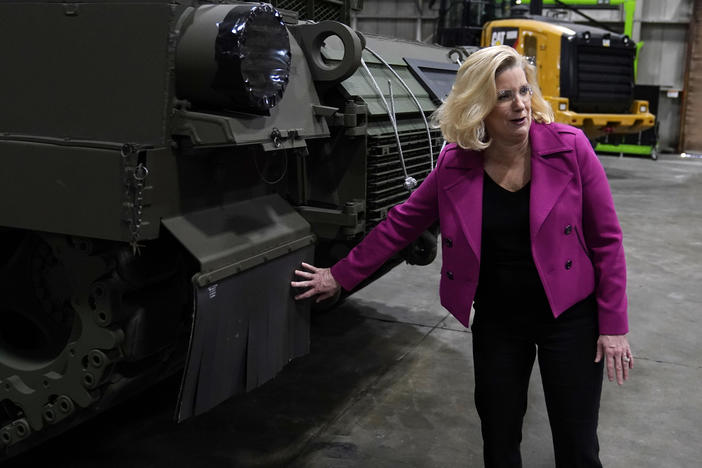Section Branding
Header Content
The U.S. and NATO stress unity on Ukraine as EU leaders worry about divisions
Primary Content
PARIS — As the U.S. and NATO stressed a "united front" in their response to Russia's security demands, European leaders are working their own diplomatic avenues to end the tensions and worry that talk of a Russian invasion of Ukraine could be deepening divisions among them.
On Wednesday, the same day U.S. Secretary of State Antony Blinken warned of "steep consequences" facing Russia should Putin refuse to de-escalate, France hosted its own diplomatic meeting with representatives from Germany, Russia and Ukraine.
French President Emmanuel Macron has urged Europe to take Putin down a path of de-escalation and said that the European Union will use every tool in its diplomatic toolbox to avoid a major war. For its part, Germany has refused to provide military aid directly to Ukraine – other than helmets – saying it will not send weapons into a crisis zone.
But efforts by France and Germany at a Europe-led diplomatic push are complicated by Putin's desire for dialogue with the U.S., says French political analyst Christian Markarian.
"Putin wants the Europeans to understand that between Russia and America there is nothing. Russia is a superpower, America is a superpower, and Europe is not," Markarian said.
The approaches taken by France and Germany could be at odds with fellow NATO members Poland and the Baltic states, which favor a harder line against Russia.
And political divisions – both across the Atlantic and among Europeans – only serve to help Putin, experts say.
"I think there's an awareness now that the West cannot afford to appear divided in front of the Russian threat. And there's also an awareness that this crisis and this conflict is larger than Ukraine," said Sylvie Kauffmann, editorial director of France's Le Monde newspaper.
The Russian government's security demands include a guarantee that Ukraine will not join NATO and the withdrawal of NATO military personnel and equipment from states neighboring Russia that joined the alliance after 1997.
Sullivan reported from Washington, D.C.
This story originally appeared on the Morning Edition live blog.
Copyright 2022 NPR. To see more, visit https://www.npr.org.
Bottom Content




